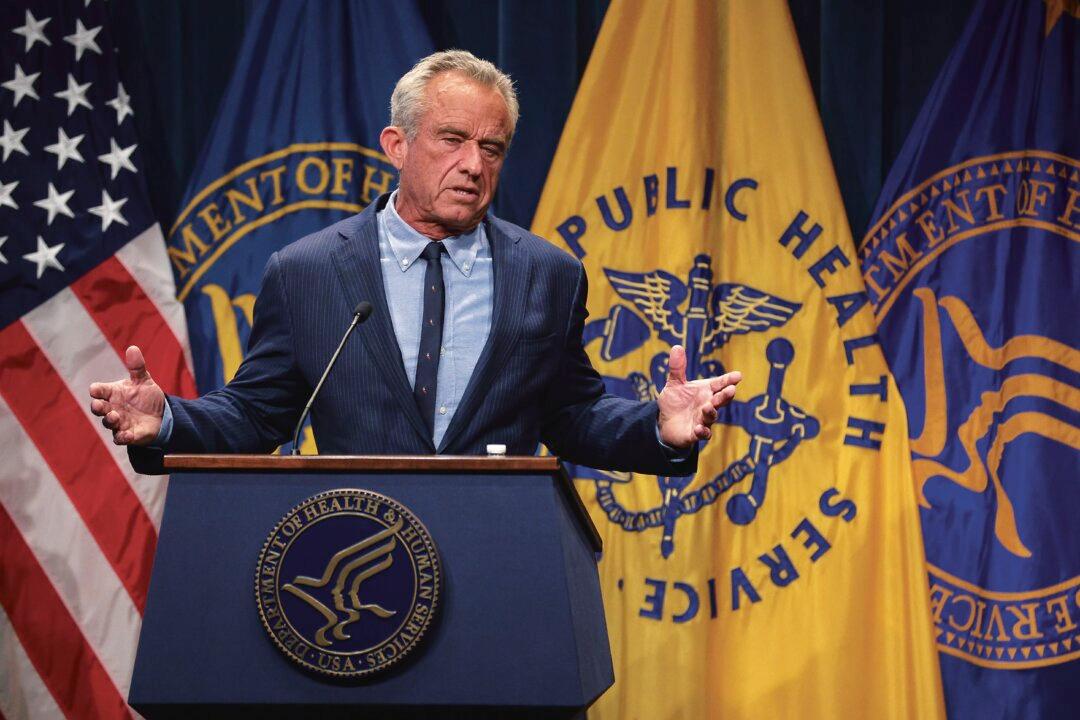Commentary
Secretary of Health and Human Services Robert F. Kennedy Jr. announced on April 16 that the rate of autism has dramatically increased and now stands at one in 31 for 8-year-old children, according to data in a new report produced by the Centers for Disease Control and Prevention’s Autism and Developmental Disabilities Monitoring Network. At his first news conference as secretary, Kennedy explained to the nation the reality and cost of profound autism.


